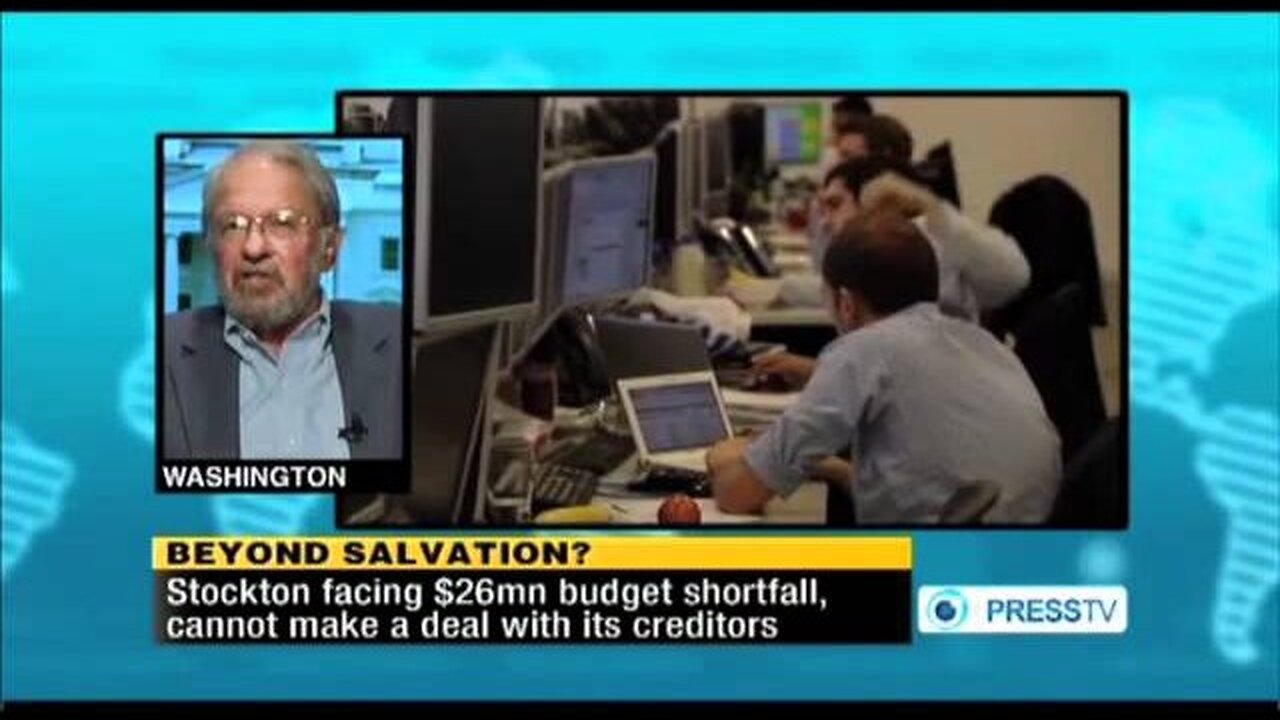Premium Only Content

Banking Corruption - @MaxKeiser & @SimonDixonTwitt provide commentary
Nothing in this content should be treated as tax, legal, investment or financial advice. Full details here: https://www.retirementplanb.com/disclaimers
Max Keiser and Simon Dixon (@SimonDixonTwitt) provide commentary on Press TV about Shadow banking system greater than visible banking system.
An interview with Max Keiser, financial journalist from Paris Bloomberg just ran a report that the shadow banking system is greater than the visible banking system...you had many more trillions of dollars worth of derivatives building up in the shadow banking system...Banks make money trading these instruments back and forth with each other in the shadow banking system. It's unregulated."
Before the 2008 global financial crash, there were many trillions of dollars worth of derivative projects in the shadow banking system, says an analyst.
Since the 2008 collapse of Lehman Brothers, we've had a global unwinding of bad debt, financial journalist Max Keiser said in an interview with Press TV.
He added that JP Morgan's recent financial loss has suddenly made more visible the shadow banking system.
The following is a rough transcription of the interview.
Press TV: A Pan-European banking authority be put in place and give Brussels the final say over national budgets in the eurozone. That's what a host of these officials such as EU President Herman Van Rompuy, the European Commission President Jose Manuel Barroso, the Central Bank chief, that's what they've asked for. What do you think about this?
Keiser: To follow up on what the previous speaker said about collateral values and banks lending to each other based on presumed collateral value, the collateral value of these banks is constantly being downgraded. All of the bonds of these sovereign countries and these banks are being downgraded by Moody's and S&P which means that the banks' balance sheets are being impaired more.
Since the 2008 collapse of Lehman Brothers, we've had this global unwinding of all this bad debt. To solve it, it would be like trying to catch a piano that's been thrown off a 20-story building. There's no way you can do that.
There's no solution to this other than to let the system play out, let these debts find a market because by simply trying to keep them afloat with more quantitative easing, more accounting tricks, more lending facilities, all that's happening is that a greater percentage of the population of these countries are being exposed to austerity measures for things that they themselves have nothing to do with.
Press TV: What do they mean though when they say a Pan-European banking authority? Pretty much they want control as to what banks are going to do and to have oversight on them, is that what that means?
Keiser: What it means is banks are sitting on bad debts and instead of revealing these bad debts they want to re-securitize them and resell them into a Pan-European banking facility and pretend as if these bad debts are really good by re-denominating them in euros or outside of euros or possibly from the IMF -- is talking about re-denominating these debts in special drawing rights which is the currency of the IMF.
They're looking of ways to kick the can down the road by expanding the debt on top of this shrinking collateral value, on top of a shrinking economy, on top of unemployment numbers that are getting worse and an economy that's getting worse. They're exaggerating the problem. They're pursuing the wrong policies and, yes, social tensions are rising.
Press TV: There have been other tools that have been used and perhaps you can fill us in on them ever since maybe the financial crisis hitting 2007, 2008. Why have those tools failed? It's been, what, four or five years since then.
Keiser: I think that they draw the wrong conclusions and lessons from the Depression. The thing that got the US and the world out of the Depression back in the 30s was the introduction of things like the Glass-Steagall Act that was alluded to earlier, real banking reform and a Pecora Commission that put bankers in jail.
Here they are ignoring the predatory bankers, the kleptocrats that are destroying these countries and these economies, and instead they're trying to puff up or put a blood transfusion to a corpse. The banks are effectively dead. Their balance sheets are worthless. The only thing that keeps these zombies alive is a pretend-and-extend game between governments and bankers.
I would say that additionally what's remarkable is that if you look at some of these bankers on Wall Street, if they're looking to take over a country like Greece, they have an infinite amount of credit at their disposal at virtually zero percent interest rates.
For more subscribe, join http://www.simondixon.org and tweet @SimonDixonTwitt
-
 1:54
1:54
Simon Dixon
4 months agoAmerica's WAR Machine: Pumping On 3 Fronts | #BitcoinHardTalk Ep.58
163 -
 15:55
15:55
TSPLY
1 day agoThe Media Is Very Afraid Of FBI Director Kash Patel
23.2K22 -
 6:57
6:57
Cooking with Gruel
18 hours agoMake Cheese Great Again
19.7K10 -
 5:17
5:17
Mrgunsngear
21 hours ago $1.84 earnedPresident Trump Has Appointed A New ATF Director
21.7K23 -
 48:17
48:17
Athlete & Artist Show
8 days ago $0.01 earnedS5E1: Chucky Announces First Kid, 4 Nations Face Off, and more!
14.6K -
 38:30
38:30
hickok45
6 hours agoSunday Shoot-a-Round # 269
41.3K12 -
 1:39:55
1:39:55
Squaring The Circle, A Randall Carlson Podcast
1 day ago#040 Humanity's Expansion Into The Cosmos: A New Age - Squaring The Circle
15.7K4 -
 12:54
12:54
ariellescarcella
16 hours agoYou're NOT Queer, Just Annoying And Boring
15.7K9 -
 18:57
18:57
Fit'n Fire
12 hours ago $0.03 earnedA PDW That Thumps -- Stribog SP45A3 45ACP
18.8K1 -
 2:06:23
2:06:23
Game On!
16 hours ago $0.80 earnedAnother Sunday Without Football...
27.9K1